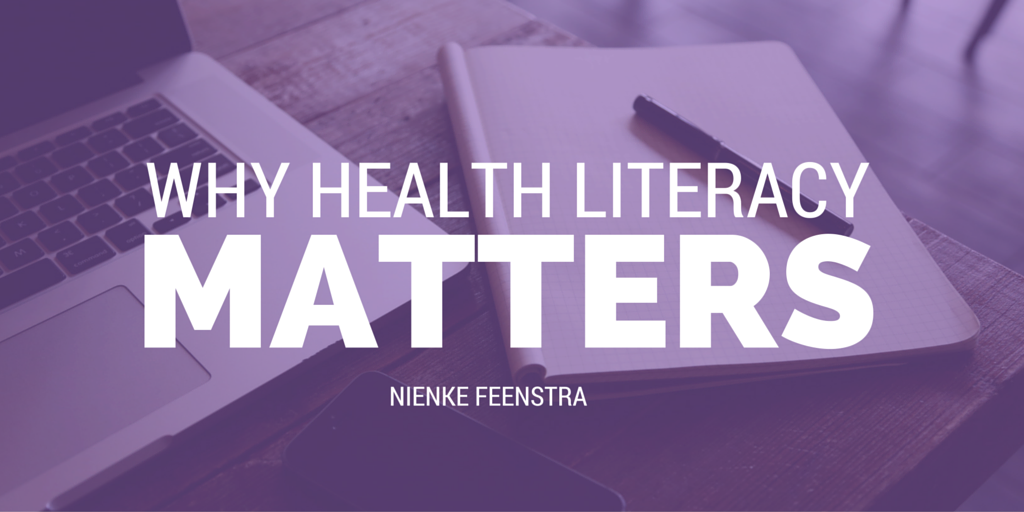Imagine that tomorrow you woke up and did not feel well. So unwell, that you could not go about your day to day, you could not perform to the best of your abilities at work, and you were left feeling physically and emotionally drained, without any sign of improvement. What would you do?
If you responded, “go to the doctor!” and were able to imagine the facility you would drive to and maybe even the physician you would meet with, you’ve already demonstrated a certain level of health literacy, which means: the degree to which an individual has the capacity to obtain, process, and understand basic health information and services needed to make appropriate health decisions in order to prevent or treat illness.
Before I moved to Hungary, I never really thought much about health literacy; it never came up as key in improving health outcomes. However, living now for almost nine months in Hungary has really changed that. When people first told me of patients who didn’t get medical treatment when they needed it or care being delivered in different ways in different parts of the country, I initially and rather naively wondered, “why don’t patients just ask for a second opinion, why don’t they just go somewhere else?” Turns out, many patients either don’t know they can or don’t know how to do so.
When first confronted with the statistics on the very high oncology mortality rates in Hungary, I assumed it must have been due to late access to innovation. Yes, that plays a part, but the fact that patients don’t go to the doctor when they need to because they don’t understand the urgency plays a significant part, too. Health literacy has so many sides to it. I have become passionate about this and want to share why it matters.
Health literacy goes beyond one’s ability to find an appropriate doctor in times of distress. Once in a medical office or facility, whether we realize it or not, we are met with a multitude of moments that require, to varying degrees, health literacy.
Next to realizing when you need appropriate medical care, your ability to fill out complex paperwork, relay a comprehensive health history, and engage in self-care and chronic-disease management are all dependent on your level of health literacy. Health literacy affects one’s ability to manage medications, understand test results, and assess nutrition. Not to mention understanding the complex world of choosing a health insurance and how to manage the financial consequences of sickness.
And so through this, your level of proficiency will ultimately affect your health status and patient experience. Insufficient health literacy affects people’s ability to navigate the healthcare system, understand complex diseases and conditions, and make key decisions about their own health.
Your degree of health literacy is strongly determined by your age, education, financial situation and gender, and to a lesser extent by where you live including your country’s culture, healthcare and public health systems, as well as the communication skills of the professionals in your area. A combination of individual and systemic factors particular to a region will highly determine the health literacy of the general population.
The various skills required of the health literate can be overwhelming, even to persons with advanced literacy in other areas. Many people maintain outdated, forgotten, or incomplete knowledge from school. And many simply don’t have the resources, time, or self-discipline to become more knowledgeable. Moreover, health information is so often provided in stressful or unfamiliar situations, which means it’s highly unlikely that it will be retained or properly applied.
Recently, health awareness and the general attitude towards health have received a great deal of attention in the European Union, and these issues have been listed among the programmes of the European Commission and the WHO. As a result, several European research projects and programmes have been launched with the aim to assess and improve people’s health literacy level and their orientation skills in health matters. The Hungarian Association of Innovative Pharmaceutical Manufacturers, of which Takeda is a member, conducted a survey as part of an international research programme and found that every other citizen in Hungary has poor health literacy. This means every other person in Hungary has difficulty managing their health and preventing disease. These citizens are more likely to report poor health.
This is the reason health literacy matters. Low literacy is linked to poor health outcomes, higher rates of hospitalization, less frequent use of preventive services, and higher healthcare costs. Health literacy is the first step for people to prioritize health and care, and through that make it accessible and effective.

Leave A Comment